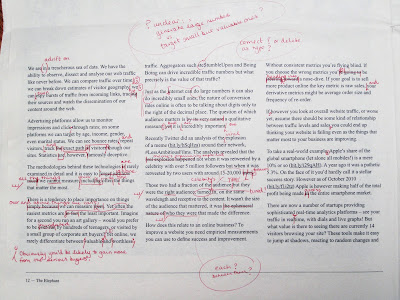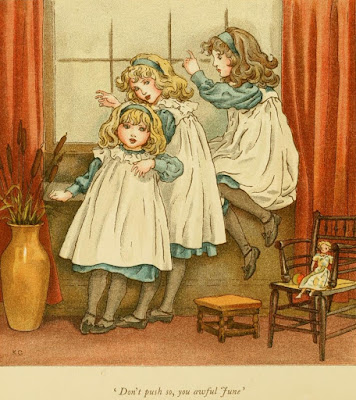Feedback Strategies
The first article I read, Be a Mirror, I did not relate to very much. I thrive when given praise. It gives me the confidence to go the extra mile. I have the will power to get done what I need to get done. However, I generally only go above and beyond when I know someone will appreciate it and they have told me that they do. This article focused a lot on the wording of praise. The best way I can describe this is "extra." I don't see it making a large difference. I understand Carol Dweck's work and I can see what she is saying, but this post took even the smallest wordings to another level I found unnecessary.
Next, I read Presence not Praise. I enjoyed this one quite a bit more. Just the other day, my mom was asking me if I had pride in my work or if I relied on the praise of others to feel good about myself. I do hold pride in my work and the things that I do. But it always feels good to have someone tell me I'm doing a good job. I think a lot of kids just want someone to pay attention to them and have interest in what they're doing. They don't always need praise.
I usually have a hard time giving feedback in classes. Peer review is almost always used for writing projects, and I feel that writing can be so subjective. Sometimes I'll see a sentence that makes me cringe. There's nothing really wrong with it. I just sounds bad. I end up wanting to rewrite the whole paper for people. I'm also big on grammar, and surprisingly, many people still don't know what they're doing. When I get a project like that, I feel bad for them. I want to be gentle, but I also want them to get a good grade. I leave red pen all over the paper, ripping their sentences to shreds. I try to leave a few compliments and smiley faces. When I go to give them their paper back, I apologize in advance and offer a sheepish grin. Then, I skitter away before they can see what I wrote. The thing is, I always tell peers to go hard on my papers. I want that harsh feedback. If a peer can catch something that I'll lose point on before I turn it in, I'm incredibly grateful. Criticism is a good thing if it will make a difference.
Next, I read Presence not Praise. I enjoyed this one quite a bit more. Just the other day, my mom was asking me if I had pride in my work or if I relied on the praise of others to feel good about myself. I do hold pride in my work and the things that I do. But it always feels good to have someone tell me I'm doing a good job. I think a lot of kids just want someone to pay attention to them and have interest in what they're doing. They don't always need praise.
I usually have a hard time giving feedback in classes. Peer review is almost always used for writing projects, and I feel that writing can be so subjective. Sometimes I'll see a sentence that makes me cringe. There's nothing really wrong with it. I just sounds bad. I end up wanting to rewrite the whole paper for people. I'm also big on grammar, and surprisingly, many people still don't know what they're doing. When I get a project like that, I feel bad for them. I want to be gentle, but I also want them to get a good grade. I leave red pen all over the paper, ripping their sentences to shreds. I try to leave a few compliments and smiley faces. When I go to give them their paper back, I apologize in advance and offer a sheepish grin. Then, I skitter away before they can see what I wrote. The thing is, I always tell peers to go hard on my papers. I want that harsh feedback. If a peer can catch something that I'll lose point on before I turn it in, I'm incredibly grateful. Criticism is a good thing if it will make a difference.
(Image Information: Marked Up Paper
Source: Flickr)




Comments
Post a Comment